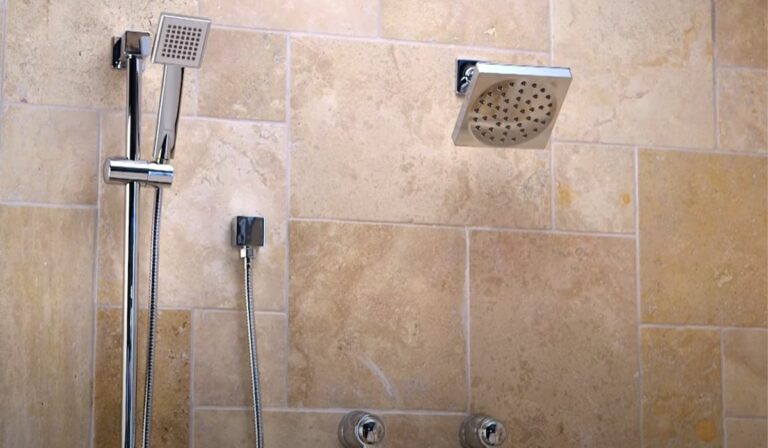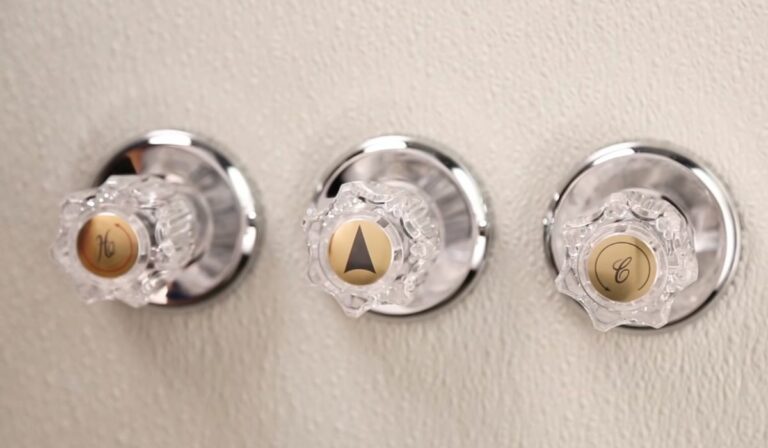Is It Safe to Shower During a Storm
You shouldn’t shower during a storm because lightning can travel through your home’s metal plumbing, risking electric shock even without a direct strike. Water and pipes conduct electricity, making showers, sinks, and baths dangerous when lightning is nearby. To stay safe, avoid water use until the storm passes. If you want to protect yourself properly and understand why this happens, keep exploring what experts recommend and how to stay secure during severe weather.
Understanding the Risks of Lightning and Water
Although it might seem harmless, showering during a storm can be dangerous because water conducts electricity. When lightning strikes nearby, the electrical current can travel through water pipes and wet surfaces.
Since your body is wet and in contact with metal plumbing or water, you become a potential path for electricity. This increases your risk of electric shock or injury.
Even if the lightning doesn’t hit your home directly, the electrical charge can still travel through plumbing systems. You mightn’t feel any warning signs before a shock happens, so it’s best to avoid using water during storms.
Understanding this risk helps you make safer choices and protect yourself from hidden dangers when thunderclouds are overhead.
How Lightning Can Enter Your Home’s Plumbing
When lightning strikes near your home, it can send a powerful electrical current through metal pipes connected to your plumbing system. Since these pipes are often grounded, the electrical charge can travel through them, entering your home’s water lines.
If you’re using water during a storm—like showering or washing dishes—the current may pass through the water and into your body, creating a dangerous situation. Copper or galvanized steel pipes are especially good conductors, increasing the risk.
Even if the lightning doesn’t hit your house directly, a nearby strike can still cause this electrical flow. So, understanding how lightning interacts with your plumbing helps explain why using water during a storm can be hazardous.
Safety Precautions to Take During a Storm
Understanding how lightning can travel through your home’s plumbing system highlights the importance of taking specific safety measures during a storm.
To protect yourself, avoid using water-based fixtures like showers, sinks, and bathtubs until the storm passes.
Lightning can strike nearby power lines or trees, sending electrical currents through your home’s pipes.
You should also unplug electrical appliances and avoid using corded phones.
Stay away from windows and doors, and avoid touching metal objects connected to plumbing or wiring.
If you hear thunder, it’s best to wait at least 30 minutes after the last sound before resuming water use.
Alternatives to Showering During Severe Weather
Since using water fixtures during a storm poses risks, you’ll want to consider other ways to stay fresh and clean. Instead of showering, try using wet wipes or a damp washcloth to quickly cleanse your skin.
Dry shampoo can help keep your hair feeling fresh without needing water. You might also take a sponge bath using a basin of water, which limits your exposure to plumbing during the storm.
If you have access to bottled water, you can use it for minimal washing. These alternatives reduce the chance of electrical shock or plumbing issues caused by lightning strikes.
Real-Life Incidents and Expert Opinions
Although storms can seem unpredictable, numerous real-life incidents highlight the dangers of showering during severe weather. People across the country have experienced electric shocks in their showers when lightning strikes nearby, as water pipes conduct electricity.
Experts warn that metal plumbing can transmit dangerous currents, putting you at serious risk. The National Weather Service and electrical safety specialists strongly advise avoiding water use during storms. They emphasize that even indirect lightning strikes can energize your home’s plumbing system.
So, when a storm hits, you should avoid showering, washing dishes, or using faucets. By listening to these expert opinions and learning from real cases, you’ll better protect yourself from electrical hazards during severe weather.
It’s always safer to wait until the storm passes before using water.
What to Do If You Are Caught Showering During a Storm
If you find yourself showering when a storm suddenly hits, don’t panic—act quickly to minimize your risk. Step out of the shower immediately and avoid touching metal fixtures, as lightning can travel through plumbing.
Dry yourself with a towel and move to a safe area away from water sources, such as sinks or bathtubs. Stay indoors but keep clear of windows and doors.
Avoid using electrical devices or landline phones during the storm. If possible, unplug sensitive electronics to prevent damage from power surges.
Wait until the storm passes completely before resuming your shower or any water-related activities. Staying calm and acting fast reduces the chance of injury, helping you stay safe until the danger has passed.
Frequently Asked Questions
Can Using a Bathtub Be Safer Than a Shower During a Storm?
Yes, using a bathtub can be safer than a shower during a storm since you’re less likely to touch metal fixtures. Still, avoid water contact altogether during lightning to keep yourself fully safe.
Does the Type of Plumbing Material Affect Lightning Risk?
Yes, the type of plumbing material affects lightning risk. Metal pipes conduct electricity, increasing danger during storms, while plastic pipes don’t conduct electricity, making them safer. So, knowing your plumbing helps you stay cautious during lightning.
Are Tankless Water Heaters Safer During Lightning Storms?
Yes, tankless water heaters are generally safer during lightning storms because they use less water storage and reduce electrical hazards. However, it’s best to avoid using any electrical appliances or plumbing during storms to stay safe.
Is It Safe to Wash Dishes During a Thunderstorm?
You shouldn’t wash dishes during a thunderstorm because lightning can cause electrical surges through plumbing. To stay safe, wait until the storm passes before using water connected to metal pipes or outlets.
Do Lightning Rods Reduce the Risk of Electrical Surges in Plumbing?
Yes, lightning rods help reduce electrical surges in your plumbing by directing lightning safely to the ground. They protect your home’s electrical system, lowering risks during storms, so you can feel more secure indoors.
Conclusion
During a storm, it’s best to avoid showering to keep yourself safe from lightning risks. Since lightning can travel through your home’s plumbing, using water puts you at danger. Instead, wait until the storm passes or choose alternatives like using hand sanitizer or wiping down with a towel. If you’re caught showering when lightning strikes, exit carefully and stay away from plumbing until the storm ends. Staying cautious protects you and your loved ones.


